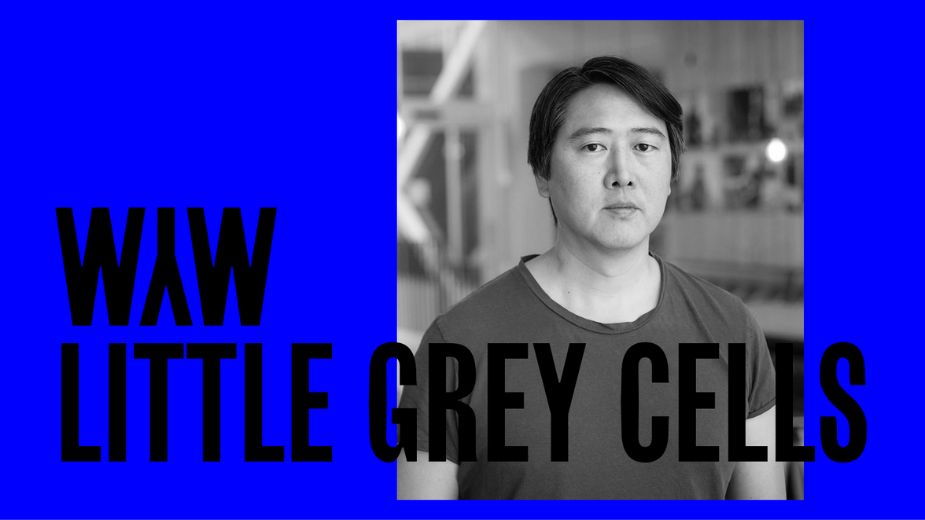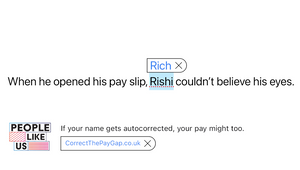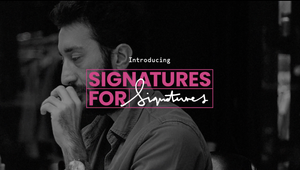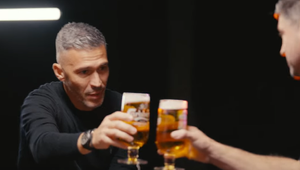
Little Grey Cells: Oatly’s Michael Lee on the Ideal Conditions for Creativity

Little Grey Cells learns how Oatly’s Creative Director, Michael Lee, operates unflustered by KPIs and ROIs, how the Metaverse is like Birkenstocks and how Oatly will always stay true to their mission to change the food system to a more plant-based future.
What inspired you to pursue a career that embraces marketing?
Michael> I’m not sure I have. A long time ago, someone really smart said that creativity is the most powerful multiplier in business, and I thought, yeah, I can get on board with that. Our way of working at Oatly is pretty simple – remove all barriers to doing good work, which, in our experience, has been marketing department thinking. Back in the day, when Toni Petersson (CEO) asked his friend John Schoolcraft (Chief Creative Officer) to join him on his journey of food company disruption, it was all about creating the ideal set-up and conditions for creative ideas to flourish untouched by KPIs, ROIs and awareness studies. So in that way, I’m not sure that ending up in a place called the Oatly Department of Mind Control really qualifies as an embrace of marketing, but rather a search for something more volatile and probably a lot more stupid.
What are the biggest challenges currently facing your marketing team?
Michael> The right talent. You can find lots of cool creative people and you can find lots of people who understand the business but finding both is difficult and finding people who can do all that with a little punk attitude sprinkled on top is like catching the most elusive Pokemon. Going from being handed a brief to having all the buttons and dials of a global organisation at your disposal can be daunting or liberating or just plain scary. There is something to be said about having an entrepreneurial gene that thrives in the unknown and is wired to just figure stuff out. So, if you have that, well, good for you.
Science vs Art: With scientific data-driven marketing at one end of the spectrum and genius creative ideas at the other - which side do you lean towards?
Michael> Is this a trick question? We are definitely not data-driven, but I don’t hate technology. You just need to have a healthy disregard for it and not blindly follow every widget or gizmo that comes along. I want a robot to vacuum my floors, but not nudge and poke me a thousand times down some engagement funnel. Wait, is this all a simulation?
The Metaverse: are you ‘in’, ‘out’ or ‘not sure’? And please tell us why.
Michael> Can I get back to you on this? It’s like I hated Birkenstocks in high school, but now I kind of like them. One day in the near or far future, we’ll have an idea that involves a freaky place where people gather virtually in ways that aren’t full of bullying or dorky Wii-style graphics and then we’ll be in the meta-verse and it will either suck or be cool. Who knows?
How do you adapt a business and marketing strategy to embrace the latest trends and keep ahead of the competition?
Michael> We’re always changing and evolving in order to stay the same. It’s not really about staying ahead of the competition, but fighting to remain who we are, everywhere that might be.
What role does your company’s purpose and environmental strategy play within your marketing strategy?
Michael> It’s basically at the core of everything we do. Oatly does so much more than just produce and sell oat drinks. We are on a mission to change the food system to a more plant-based future, which involves taking action and raising the volume on important issues for everyone from consumers to politicians to consider and discuss and get passionate about.
How important is storytelling when maximising your customers’ engagement with a campaign?
Michael> Our academic and scientific heritage is the foundation for the company and gives our voice its credibility. Many people don’t realise that Oatly is actually 25 years old, borne out of Lund University research in Sweden. That heritage allows us to just kind of be that brand that people want to hang out with, and once they get to know us, they tend to dig a bit deeper into our commitment to science and sustainability and nutrition and health and that’s when people start to become really intrigued by us. Our storytelling is sometimes provocative, sometimes nonsensical, always a bit messy even, but the core of our purpose has always been clear, bold and fearless in our plant-based mission to challenge the status quo.
Creative agencies rail against the time and resource spent working on pitches to win accounts: is there a realistic, fair alternative to the pitch process?
Michael> Yeah, just become the client.
From a marketing perspective, what’s coming up for your brand or business in 2023?
Michael> Our latest YouTube series “Will it Swap?” just launched challenging a motley crew of American cooking heroes to switch-up their favourite meals with plant-based alternatives. Season 2, which will have a Euro-spin, is already in the works and will come out in 2023. Apart from that we’ve been pretty busy coming up with good and bad ways to encourage people to eat more plant-based food. This year alone we pinned our hopes on a couple of oat drink carton puppets named Norm&Al, created a documentary around a study we commissioned to find out what happens when professional footballers go plant-based, and had a confusing time visiting Otley in the UK to ask the locals about Oatly. … Expect more or the same for 2023 too.
Michael Lee was interviewed By Tim Healey (Little Grey Cells) on behalf of Worth Your While (wyw.agency).










